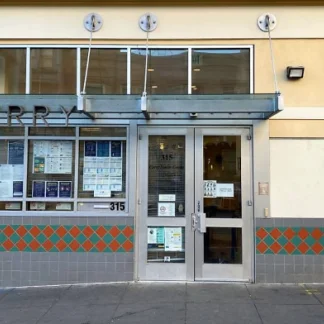Mission Council Family Day Treatment
Mission Council Family Day Treatment offers office-based drug and alcohol rehab ...
The Liberation Institute (“Libi”) is a nonprofit organization committed to providing affordable professional counseling to everyone, including dual diagnosis support for people struggling with alcohol and substance use disorders. They have centers in both California and Oregon.
The Liberation Institute’s Telehealth counseling and psychotherapy are provided by professional clinicians licensed in both California and Oregon. They serve adults, youth, children, couples, and families. They hold a monthly recovery support meeting in Portland, Oregon, and a weekly general support meeting in various locations in California.
Libi is committed to providing high-quality mental health care to all individuals, regardless of ability to pay. Their services are available on a sliding cost scale, and additional financial support is available.
Contact us for more information: (415) 885-2274

Connect with Curry Senior Center by calling their admissions team directly.
(415) 885-2274 Website Get DirectionsCognitive Behavioral Therapy (CBT) is a therapy modality that focuses on the relationship between one's thoughts, feelings, and behaviors. It is used to establish and allow for healthy responses to thoughts and feelings (instead of unhealthy responses, like using drugs or alcohol). CBT has been proven effective for recovering addicts of all kinds, and is used to strengthen a patient's own self-awareness and ability to self-regulate. CBT allows individuals to monitor their own emotional state, become more adept at communicating with others, and manage stress without needing to engage in substance abuse.
Group therapy is any therapeutic work that happens in a group (not one-on-one). There are a number of different group therapy modalities, including support groups, experiential therapy, psycho-education, and more. Group therapy involves treatment as well as processing interaction between group members.
In individual therapy, a patient meets one-on-one with a trained psychologist or counselor. Therapy is a pivotal part of effective substance abuse treatment, as it often covers root causes of addiction, including challenges faced by the patient in their social, family, and work/school life.
Group therapy is any therapeutic work that happens in a group (not one-on-one). There are a number of different group therapy modalities, including support groups, experiential therapy, psycho-education, and more. Group therapy involves treatment as well as processing interaction between group members.
In individual therapy, a patient meets one-on-one with a trained psychologist or counselor. Therapy is a pivotal part of effective substance abuse treatment, as it often covers root causes of addiction, including challenges faced by the patient in their social, family, and work/school life.
In individual therapy, a patient meets one-on-one with a trained psychologist or counselor. Therapy is a pivotal part of effective substance abuse treatment, as it often covers root causes of addiction, including challenges faced by the patient in their social, family, and work/school life.
Mission Council Family Day Treatment offers office-based drug and alcohol rehab ...
Stepping Stone Women's Recovery, located in San Francisco, California, offers du...
Walden House is a private rehab located in San Francisco, California. Walden Hou...
PRC – Acceptance Place is a dual-diagnosis and addiction treatment center based ...